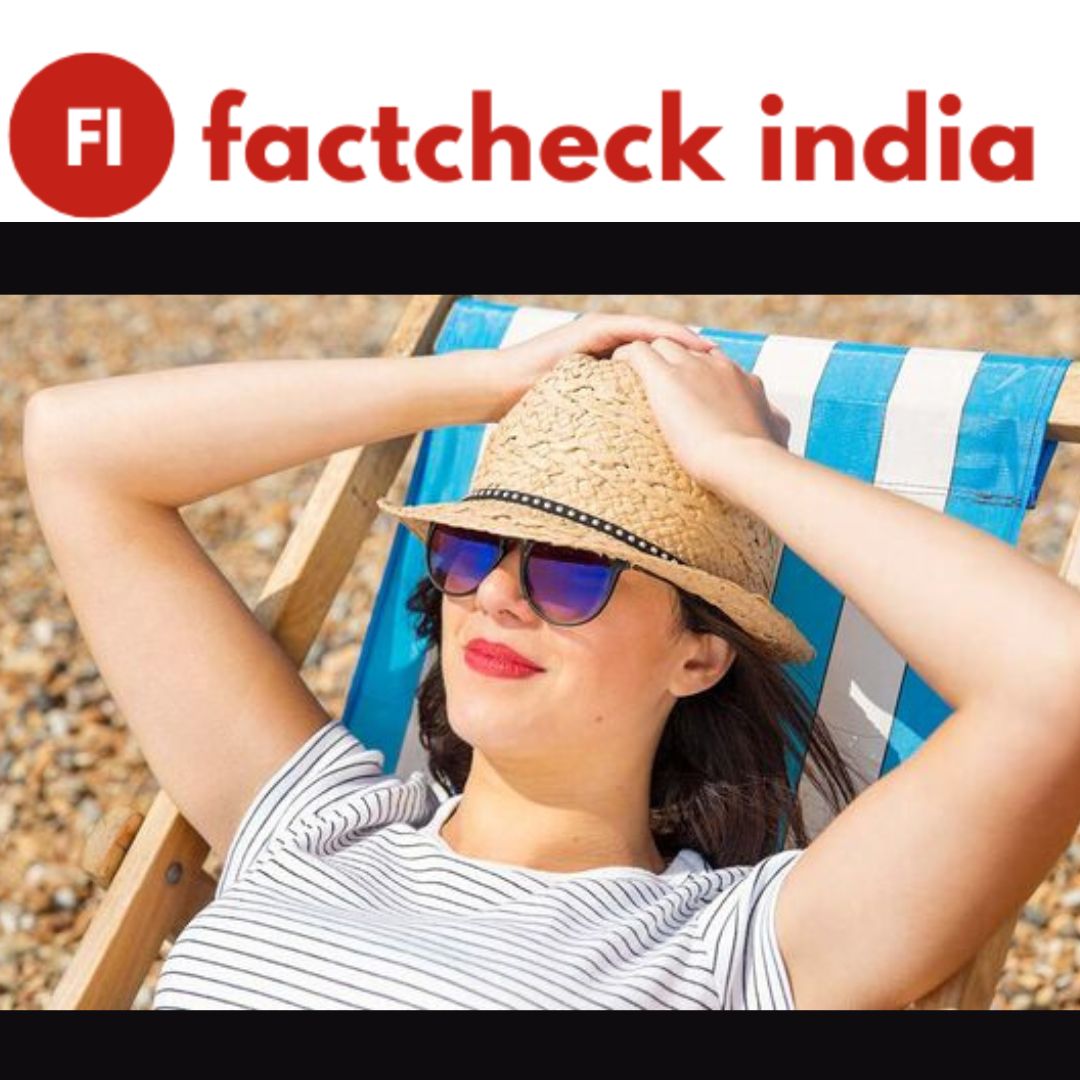Claim: This misinformation has prompted urgent fact-checking due to its potential to discourage people from using proven UV protection methods.
Verdict: Completely False ( DANGEROUS MISINFORMATION )
Source of the Misinformation
The Viral Video Content
The widely-shared content features edited clips from what appears to be an interview with Andreas Moritz, described as a “medical intuitive” and Ayurveda practitioner who reportedly died in 2012. The video, posted in April with over 130,000 likes on Instagram and subsequently shared on TikTok, makes several unfounded medical claims.
Leading medical experts and health organizations, including the NHS, unanimously reject these claims. There is no credible scientific evidence supporting the assertion that sunglasses cause cancer. On the contrary, verified UV-filtering sunglasses are strongly recommended by medical professionals to prevent eye damage and skin cancer around the delicate eye area.
Key Claims Made in the Video:
- Sunglasses introduction allegedly caused cancer rate increases
- UV light blockage prevents hormone production necessary for melanin creation
- The body requires UV light through the eyes to protect skin elsewhere
- Wearing sunglasses tricks the body into thinking it’s dark, reducing natural protection
Critical Analysis of the Claims
Scientific Inaccuracies Identified:
- Misunderstanding of Melanin Production: The claim fundamentally misrepresents how melanin is produced in human skin
- Hormone Confusion: References to unspecified “hormones” without scientific backing
- Physiological Misrepresentation: Incorrect explanation of how UV protection works in the human body
Expert Medical Opinion
Leading Eye Specialist Assessment
Professor Gus Gazzard, ophthalmology professor and Director of Surgery at Moorfields Eye Hospital in London, provided definitive expert analysis:
“Any link between sunglasses and increased cancer risk is purely hypothetical and speculative, with many unproven steps within that link. UV eye protection is recommended because of the protective effect for the eye itself.”
Professor Gazzard emphasized that the core argument “makes no sense and has no scientific basis.” He noted that melanin production occurs locally within skin tissue and doesn’t require visual stimulation, pointing out that visually impaired individuals can still develop tans.
Dermatology Expert Perspective
Dr. Rubeta Matin, consultant dermatologist and senior clinical lecturer in dermatology at Oxford, confirmed there is no credible evidence that wearing sunglasses increases skin cancer risk through the mechanisms described in the viral video.
Dr. Matin clarified important medical facts:
- UV light on skin does increase melanocyte-stimulating hormone (MSH) levels
- This leads to increased melanin production and tanning
- However, this effect is limited, particularly in fair-skinned individuals
- The protection provided by natural tanning is minimal compared to proper sun protection
The Science of UV Protection
How Melanin Actually Works
Melanin Production Reality:
- Melanin is produced locally in skin cells called melanocytes
- These cells are located in the skin’s deeper layers
- UV rays directly stimulate melanocytes where they hit the skin
- This is why tanning occurs only on sun-exposed areas, not covered skin
- The process is entirely local and doesn’t require UV light entering through the eyes
Limited Protection from Tanning:
- A “base tan” provides protection equivalent to SPF 3-4
- This is far below the SPF 30+ recommended by medical professionals
- Skin lacks even this minimal protection while achieving the tan
- Natural tanning cannot replace proper sun protection measures
Factors Affecting Melanin Production
Multiple Influences on Melanin:
- Direct UV exposure to skin (primary factor)
- Hormonal changes (pregnancy, medical conditions)
- Genetic factors determining skin type
- Age and individual variation
What Doesn’t Affect Melanin Production:
- UV light entering through the eyes
- Wearing or not wearing sunglasses
- Visual stimulation of any kind
Established Medical Guidelines
NHS and International Recommendations
Official Health Authority Guidance:
- NHS strongly recommends UV-filtering sunglasses
- Sunglasses protect eyes and surrounding skin from cancer-causing UV rays
- Verified sunglasses are considered essential sun protection equipment
- No health warnings exist about sunglasses causing cancer
Comprehensive Sun Protection Strategy
Evidence-Based Sun Safety:
- Sunscreen: SPF 30 or higher on exposed skin
- Protective Clothing: Covering arms, legs, and torso
- Shade: Seeking shelter during peak UV hours
- Sunglasses: UV-filtering eyewear for eye and surrounding skin protection
- Hats: Wide-brimmed for additional face and neck protection
Real UV-Related Cancer Risks
Proven Cancer Connections
Established Medical Facts:
- 90% of melanoma cases could be prevented through proper sun safety
- UV radiation is a primary cause of skin cancer
- Sunburn significantly increases cancer risk
- Early and repeated sun exposure creates long-term cancer risk
Eye-Specific Cancer Risks:
- Ocular melanoma (eye cancer) is linked to UV exposure
- Wearing sunglasses reduces this proven cancer risk
- UV damage to eyes can cause cataracts and other serious conditions
The Danger of Misinformation
Potential Consequences of Believing False Claims:
- Increased UV exposure without proper protection
- Higher risk of skin cancer, particularly melanoma
- Eye damage including cataracts and ocular melanoma
- Delayed adoption of proven protective measures
Identifying Quality Sunglasses
UV Protection Standards
What to Look For:
- UV400 rating or equivalent certification
- 100% UV protection labeling
- CE marking in Europe
- Australian/New Zealand AS/NZS 1067 standards
- Verification from reputable optical retailers
Quality Indicators:
- Certification from recognized standards organizations
- Clear UV protection specifications
- Reputable manufacturer information
- Professional optical retailer verification
Conclusion: Sunglasses Are Protective, Not Harmful
Final Verdict:
The viral claim that sunglasses cause cancer is medically unfounded and potentially harmful misinformation. This false narrative could discourage people from using proven UV protection methods, directly increasing their cancer risk.


Really interesting read! It’s cool how platforms like hm 88 com are making online gaming more accessible, especially with a focus on security & a wide game selection. Starting can seem daunting, but a clear guide helps! ✨